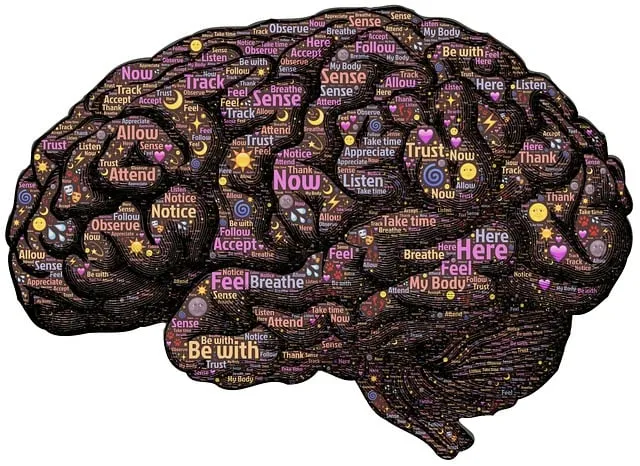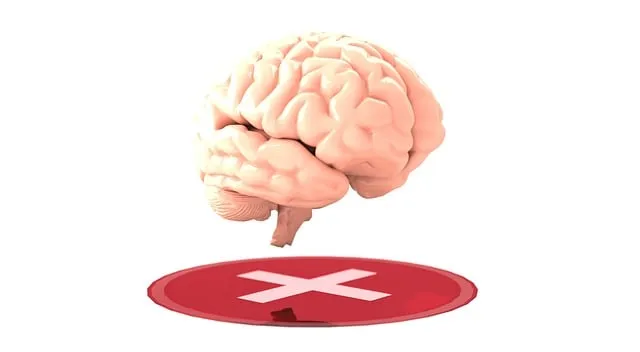Evaluating Kaiser Permanente mental health programs in Wheat Ridge uses a multi-faceted approach combining quantitative metrics (like reduced anxiety scores) and qualitative insights from patient satisfaction surveys. Feedback from patients and culturally sensitive mental healthcare providers is crucial to refine program effectiveness, addressing community needs through tailored workshops, engagement with local leaders, and public awareness campaigns.
At Kaiser Permanente mental health locations in Wheat Ridge, evaluating wellness programs is paramount for continuous improvement. This article explores comprehensive evaluation methods that go beyond quantitative metrics. We delve into the impact of mental wellness programs through Assessing Program Impact, utilizing Metrics and Surveys to gauge effectiveness. Client Feedback provides qualitative insights, while Data Analysis reveals trends shaping future initiatives. Community Engagement fosters collaboration and support, ensuring programs resonate with those they serve.
- Assessing Program Impact: Metrics and Surveys
- Client Feedback: Qualitative Insights
- Data Analysis: Identifying Trends
- Community Engagement: Collaboration and Support
Assessing Program Impact: Metrics and Surveys

Evaluating the impact of a mental wellness program is crucial for understanding its effectiveness and making data-driven improvements. At Kaiser Permanente mental health locations in Wheat Ridge, assessment methods go beyond simple self-reporting. Metrics such as changes in clinical symptoms, patient engagement rates, and treatment adherence over time are tracked to quantify program success. For instance, reductions in anxiety or depression scores measured through standardized scales can demonstrate the therapeutic value of interventions.
In addition to these quantitative metrics, surveys play a vital role in capturing qualitative insights. Patient satisfaction surveys assess how well the program meets their needs, while provider feedback forms highlight areas for improvement in service delivery. Incorporating perspectives from both patients and healthcare providers, such as those participating in Cultural Sensitivity in Mental Healthcare Practice training, ensures that evaluations are holistic and address broader issues like public awareness campaigns development and cultural competency.
Client Feedback: Qualitative Insights

Client feedback plays a pivotal role in evaluating mental wellness programs offered by organizations like Kaiser Permanente at its Wheat Ridge location. Gathering qualitative insights from program participants provides a deeper understanding of their experiences and perceptions, which can be invaluable for improvement initiatives. Through open-ended questions and focused discussions, clients share their reflections on various aspects such as therapist skills, therapeutic techniques used, and overall program effectiveness in supporting mood management and emotional regulation.
This feedback mechanism allows mental health professionals to gain insights into the client’s journey, identify challenges faced during treatment, and assess the impact of interventions on their risk management planning. By analyzing these qualitative data, practitioners can refine their approaches, adapt therapeutic strategies, and ultimately enhance the overall quality of care provided at Kaiser Permanente’s Wheat Ridge mental health locations, ensuring a more tailored and effective support system for each individual’s unique needs.
Data Analysis: Identifying Trends

Evaluating a mental wellness program requires a meticulous approach to data analysis, where identifying trends within the collected information is key. By examining participation rates, attendance patterns, and client feedback across various Kaiser Permanente mental health locations in Wheat Ridge, professionals can gain valuable insights. Trends may reveal specific programs or workshops that consistently attract high engagement, indicating their effectiveness in fostering positive thinking and mindfulness meditation among participants.
This analytical process also allows for the identification of areas needing improvement. For instance, if data shows a decline in attendance for certain sessions, it might prompt an exploration of potential barriers to access, such as scheduling conflicts or lack of awareness about available Conflict Resolution Techniques. Such insights can guide future adjustments and ensure that mental wellness programs remain responsive to the evolving needs of the community they serve.
Community Engagement: Collaboration and Support

Community engagement plays a pivotal role in evaluating and enhancing mental wellness programs, particularly at Kaiser Permanente mental health locations in Wheat Ridge. Collaboration with local communities fosters a supportive environment where individuals can access tailored resources effectively. By engaging community leaders, organizations, and residents, these mental health centers can develop programs that resonate with the unique needs of their diverse clientele. Such partnerships enable the implementation of Mental Wellness Coaching Programs Development, ensuring that support services are accessible, culturally sensitive, and relevant to the specific challenges faced by the Wheat Ridge community.
Moreover, community engagement facilitates the integration of Stress Reduction Methods and Public Awareness Campaigns Development. Through collaborative efforts, mental health professionals can educate residents on various stress management techniques, promote early intervention, and reduce stigma associated with seeking support. Local initiatives aimed at raising public awareness further strengthen the network of care, encouraging open conversations about mental wellness and ensuring that everyone feels empowered to prioritize their psychological well-being.
Evaluating mental wellness programs, such as those offered at Kaiser Permanente mental health locations in Wheat Ridge, involves a multifaceted approach. By combining metrics and surveys with qualitative client feedback, data analysis can reveal valuable trends. Community engagement is key to fostering collaboration and support, ensuring these programs meet the unique needs of their participants. This holistic evaluation method not only improves program effectiveness but also enhances the overall well-being of individuals in the Wheat Ridge community.






